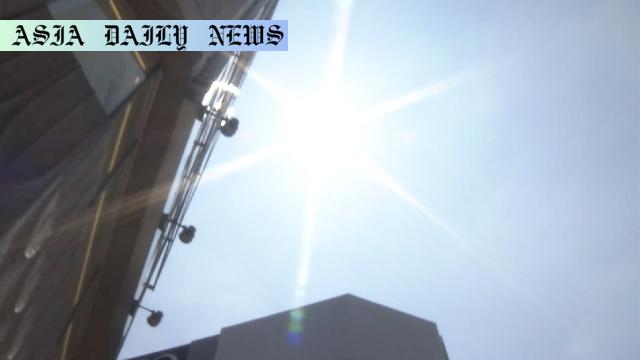Heatwave: Japan experienced its hottest June since 1898, with temperatures hitting 2.34°C above average, breaking previous records.
- Japan experienced its hottest June since record-keeping began in 1898.
- Average temperature was 2.34°C above normal, breaking a previous record set in 2018.
- High-pressure systems and unclear rain patterns contributed to the extreme heat.
- Some regions, like Omu Town and Sendai City, recorded rises over 4 and 3 degrees respectively.
- Tokyo experienced 13 days above 30°C, marking a new June record.

Introduction: Japan’s Hottest June on Record
In a striking turn of events, Japan has experienced its hottest June since temperature records began in 1898. With an alarming national average of 2.34°C above normal, this dramatic rise surpassed the previous June record set just five years ago. This sharp uptick in temperatures is a significant indicator of climate variability, and its impact has been widely felt across the country, particularly in major cities such as Tokyo and regions like Hokkaido.
Unprecedented Temperature Deviations Across Japan
Japan’s Meteorological Agency has stated that June 2023 marks an extremely unusual weather anomaly. For instance, Omu Town in Hokkaido experienced average temperatures that were 4.8°C higher than normal, while Sendai City saw an increase of 3.6°C. Central Tokyo reported a record-setting 13 days with temperatures exceeding 30°C during the month. Such deviations are significant and exemplify the increasingly unpredictable climate patterns that Japan—like much of the world—is grappling with today.
Factors Influencing the Heatwave
Weather experts have pointed to a dominant high-pressure system as one of the primary culprits for the country’s sweltering heat. This system caused unusually stable atmospheric conditions, which trapped heat across the nation. Additionally, the seasonal rain front typically observable on weather maps became indistinct and ineffective in bringing relief. The lack of rainy periods further compounded the severity and persistence of the heatwave, making it particularly challenging for both residents and authorities to cope.
Broader Implications and Summer Outlook
The extended heatwave has raised concerns regarding public health, energy consumption, and environmental impacts. Agency officials have forecasted ongoing severe temperatures into July, a worrying prospect amidst already record-breaking conditions. Climate analysts advise residents to prepare for sharp increases in electricity demand, as air conditioning becomes critical to cooling homes and workplaces. Furthermore, such heat extremes underscore the importance of long-term strategies to mitigate and adapt to climate change effectively.
Conclusion: Climate Crisis at our Doorstep
Japan’s latest meteorological data delivers a sobering reminder of the pressing need to address global warming and its ripple effects. The record-breaking June heat doesn’t just set a numerical milestone—it serves as a sharp wake-up call for policymakers, climate advocates, and communities worldwide. This development highlights the growing urgency of coordinated action to soften the impact of climate-related phenomena on human societies and ecosystems.



Commentary
Reflecting on Climate Urgency
The scorching temperatures Japan faced this June are an undeniable sign of the growing intensity of climate change. With a staggering 2.34°C rise above normal averages, such events are no longer isolated phenomena but a recurring reality. This summer’s heat is emblematic of broader shifts in global weather patterns that demand immediate attention. The alarming data not only sets a troubling precedent but also serves as a call to action for nations worldwide.
A Need for Adaptation and Mitigation
Extreme weather events, such as Japan’s heatwave, underline the need for robust measures to adapt to a warming planet. Urban centers like Tokyo, experiencing multiple days above 30°C, exemplify the stress that sustained heat places on infrastructure, energy resources, and public health. Governments, industries, and communities must work in unison to develop sustainable solutions, including building heat-resilient cities and advancing green technologies to curb emissions.
Communal Resilience and Responsibility
What this relentless heat teaches us is the profound need for societal resilience. Public awareness campaigns must focus on educating citizens about heat safety measures, while investments in renewable energy offer an avenue to tackle the root causes of global heating. Collaboration at local, national, and international levels is critical to ensuring that the most vulnerable populations are not disproportionately affected by future climate events.
Final Thoughts
Japan’s hottest June on record is not just a meteorological fact; it is part of an unfolding narrative about humanity’s relationship with the environment. As we confront such extreme climatic conditions, the question isn’t simply how to endure them but how to ensure a sustainable and equitable future. Japan’s current heatwave might well be a microcosm of the planet’s broader climate challenge, offering lessons on adaptation, innovation, and urgency.